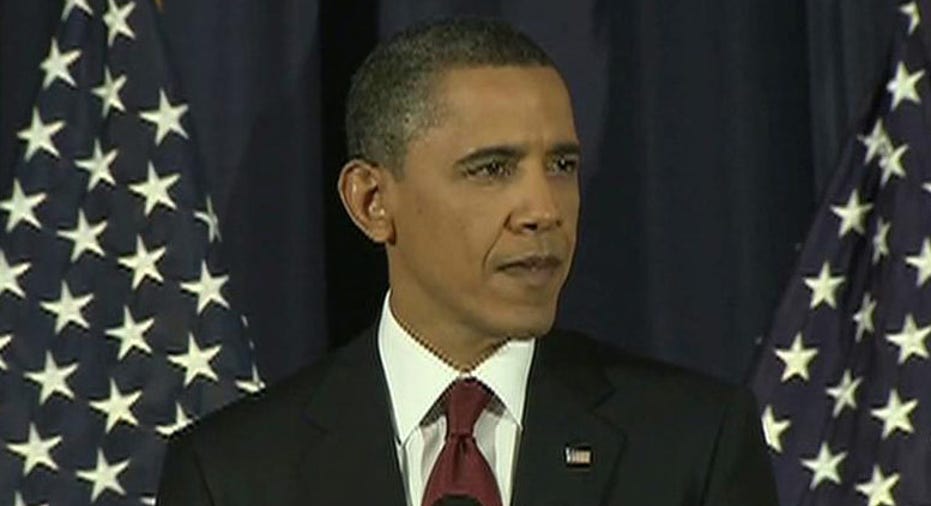Obama: 'History is Not on Qaddafi's Side'

President Barack Obama told Americans on Monday the United States would work with its allies to hasten the day when Libyan leader Muammar al-Qaddafi leaves power, but would not use force to topple him.
In a nationally televised address, Obama -- accused by many lawmakers of failing to explain the U.S. role in the Western air campaign against Qaddafi's loyalists -- made the case for his decision to intervene militarily in the Libya conflict.
But he also underscored the limits of U.S. military action as he sought to counter criticism that he lacked clear objectives and a credible exit strategy in the conflict.
"I can report that we have stopped Gaddafi's deadly advance," Obama told military officers at the National Defense University in Washington, 10 days after ordering U.S. participation in Western-led air strikes.
"We will deny the regime arms, cut off its supply of cash, assist the opposition, and work with other nations to hasten the day when Gaddafi leaves power," Obama said.
But he added that "it may not happen overnight" and acknowledged that Qaddafi may be able to cling to power. "Broadening our military mission to include regime change would be a mistake," he said.
Obama spoke on the eve of a 35-nation conference in London to tackle the crisis in the North African oil-exporting country and weigh political options for ending Qaddafi's 41-year rule.
Obama's challenge was to define the limited purpose and scope of the U.S. mission in Libya for Americans preoccupied with domestic economic concerns and weary of costly wars in two other Muslim countries, Iraq and Afghanistan.
But his words may not be enough to mollify Republican opponents who say he has failed to lead in recent global crises ranging from Middle East unrest to Japan's nuclear emergency.Obama's prime-time speech came a day after NATO agreed to assume full responsibility for military operations in Libya, ending uncertainty about who would take over the lead from U.S. forces. He said the handover would take place on Wednesday.
The alliance's decision gave a boost to Obama's effort to show Americans he was making good on his commitment to limit the U.S. military's involvement in Libya. NATO will take charge of air strikes that have targeted Qaddafi's military infrastructure as well as a no-fly zone and an arms embargo.
The White House also hopes Obama can score political points at home from gains on the battlefield by Libyan rebels emboldened by the Western air assault on Qaddafi's loyalists.



















